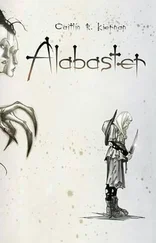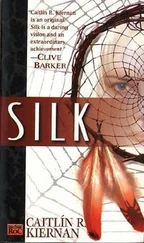Caitlin R. Kiernan - The Red Tree
Здесь есть возможность читать онлайн «Caitlin R. Kiernan - The Red Tree» весь текст электронной книги совершенно бесплатно (целиком полную версию без сокращений). В некоторых случаях можно слушать аудио, скачать через торрент в формате fb2 и присутствует краткое содержание. Жанр: Ужасы и Мистика, на английском языке. Описание произведения, (предисловие) а так же отзывы посетителей доступны на портале библиотеки ЛибКат.
- Название:The Red Tree
- Автор:
- Жанр:
- Год:неизвестен
- ISBN:нет данных
- Рейтинг книги:3 / 5. Голосов: 1
-
Избранное:Добавить в избранное
- Отзывы:
-
Ваша оценка:
- 60
- 1
- 2
- 3
- 4
- 5
The Red Tree: краткое содержание, описание и аннотация
Предлагаем к чтению аннотацию, описание, краткое содержание или предисловие (зависит от того, что написал сам автор книги «The Red Tree»). Если вы не нашли необходимую информацию о книге — напишите в комментариях, мы постараемся отыскать её.
The Red Tree — читать онлайн бесплатно полную книгу (весь текст) целиком
Ниже представлен текст книги, разбитый по страницам. Система сохранения места последней прочитанной страницы, позволяет с удобством читать онлайн бесплатно книгу «The Red Tree», без необходимости каждый раз заново искать на чём Вы остановились. Поставьте закладку, и сможете в любой момент перейти на страницу, на которой закончили чтение.
Интервал:
Закладка:
Indeed, it is difficult, when reading Olney’s journals, not to feel great sympathy for this man, driven to commit murder dozens of times over by these nocturnal visions of his beloved’s torment and imprisonment. To pick up on his allusion to Greek mythology, this mad-man has become a latter-day Orpheus charged with freeing his Eurydice, though by means incalculably more horrendous than those set forth by Virgil and Plato. In his fractured mind, Joseph Olney was left to choose between, on the one hand, becoming a monster himself and, on the other, allowing the monstrosities from his deliriums to slowly transform his dead lover into one of their own. Albert Fish might have claimed that he was charged by God to kill children, but in Fish’s claims there is not this conviction that another’s damnation hangs in the balance. I am, obviously, not here arguing that Olney’s crimes (or those of any such killer) can be justified, only that, if these “confessions” are genuine, that I cannot view him as an unfeeling fiend. He writes, repeatedly, of the almost unendurable remorse he feels after each kill, and on two separate occasions, he went so far as to write out letters of confession that he’d intended to mail to newspapers, and another he considered sending to a Roman Catholic bishop, in which he asked that someone “well trained in the dark arts required when combating evil spirits” be sent to intercede on his and Hirsch’s behalves. At no point does Olney seem to derive any sort of gratification from his activities.
There’s what seems to me a fairly glaring contradiction in all this. First, we have Bettina Hirsch described as “a willing party to it all,” intent upon her former lover’s induction into this bacchanalia of the damned. But, then we have her beseeching Olney to commit multiple murders because “. her freedom may be gained in only one way. certain sacrifices of flesh and blood to these monsters. In exchange for the fruits of my sins, in time they will release her. ” (Though, Harvey also says that Olney wrote he was told to murder by the “dire beings” he imagined lived below the tree.) I have no idea whether Harvey recognized these contradictions or not, and I have even less idea why I’m worrying over it all.
The last two days, Monday and Tuesday. I don’t even see how I can hope to write coherently about the last two days. They have come and gone, and they have changed everything, utterly, and yet, I understand, it is not a change of kind , but merely one of degree . Constance and I should have run. We should be far away from this place, but we’re not. We are here. I did try to get her to go. I tried even after she went back upstairs and locked herself in tight behind that attic door. But I’m getting ahead of myself, and, besides, maybe Constance knows something I’m too damn thick to fathom. It may be that it’s too late to leave, and it may be that it was too late weeks ago. Possibly, it was too late before I ever laid eyes on this house and the tree and Constance Hopkins, or even before Amanda’s death.
I find myself saying and writing things I would have found laughable only a few days ago. Maybe Constance knows all this stuff, already. She’s at the head of the class, the bright pupil, perhaps, and I’m sitting in the corner with my pointy hat, my nose pressed to a circle drawn upon the wall.
I am alone down here, in the stifling, insufferable heat (though a thunderstorm is brewing to the west, I think, and maybe there will be some relief there), and she’s upstairs. I am alone, but for my shabby, disordered thoughts and whatever mean comfort I can wring from the confidences I divulge to this typewriter, to the onionskin pages trapped in its carriage.
Thunder, just now. But I didn’t see any lightning.
What I’m going to write, this is how I remember it. This is the best I can do. It is, by necessity, a fictionalized recalling of the events. Of course, it’s been that way through this entire journal (and I must surely have said that already, at least once or twice or a hundred times). I cannot possibly remember even a third of the actual words, what was said and by whom and when, every single thing that was done and cannot now be undone. But that’s okay. That’s fine and dandy. I just have to get the point across, the broad strokes — the essential truth of it — putting some semblance of these things down here, so that they are held somewhere besides my mind (and, presumably, Constance’s mind, as well). My excuse for an “entry” yesterday, the long excerpt copied from Harvey’s manuscript, that was me avoiding this, sitting down to do the deed and then losing my nerve. But still needing, desperately, to type something, almost anything, even if it was something terrible that only made it that much more impossible to “look away” from what is happening here. At least, it forced me to not look away, all that shit I retyped about lunatic Joseph Olney and the women’s heads and limbs and livers and all that he buried around the oak. Looking back, it seems remarkably masochistic, but, then again, Amanda did always insist I am the sort who takes a grand, perverse pleasure in causing herself discomfort.
Start here . It’s as good a place as any.
Early Monday afternoon, day before yesterday.
I was reading a book I’d brought back from the library. My agent had called, an hour or so earlier, with the usual questions, which I’d avoided answering. But it had put me in a mood, because I’ve been trying so hard not to think about the fact that the novel isn’t getting written. I was sitting in the living room, on the sofa, sweating and drinking beer and reading A Treasury of New England Folklore . I was reading, in particular, about something called the “Moodus Noises” in East Haddam, Connecticut. Strange sounds and earth tremors dating all the way back to the Indians, who had given the place where this was all supposedly happening a name meaning “place of bad noises.” Anyway, I was reading about the Moodus noises when Constance came downstairs.
I’d not seen her since our walk to the mailbox together, and that was on Saturday. So, here it was Monday, and I’d not seen her in almost two days. She’d stopped coming down for meals, or even to use the bathroom, unless it was while I was sleeping. And, probably, that’s exactly what she was doing, sneaking downstairs while I was asleep. Well, no, not sneaking. I should not say sneaking. Merely deliberately choosing to avoid contact. But she finally showed her face, paint-stained, as it always is now, and smiled, and she pretended there was nothing the least bit odd in shutting herself away like that since Saturday afternoon.
She looked like hell, truth be told. Her cinnamon-colored eyes were bloodshot, and she squinted like the sunlight hurt them. It was obvious — whatever else she’s doing up there — she’d not been sleeping. She had a strip of cloth in her hands, a rag, and she was wiping her hands with it, over and over, obsessively, but the rag was so thoroughly impregnated with paint I can’t imagine it was doing any good. She asked me for a cigarette, and I gave her one, lit it for her, and then Constance sat down on the floor, not far away from me. She took the Altoids tin from a pocket of her smock and set it on the edge of the coffee table, opened the lid and tapped ash into it. She asked what I was reading, and I think I showed her the cover of the library book. She might have nodded. I didn’t tell her about the Moodus noises.
I don’t remember the small talk, only that there were ten or fifteen minutes of nothing in particular being said. Nothing of substance or of consequence. And then, suddenly, she laughed, stubbed out her Camel, and snapped the lid of her ginger Altoids tin shut again.
Читать дальшеИнтервал:
Закладка:
Похожие книги на «The Red Tree»
Представляем Вашему вниманию похожие книги на «The Red Tree» списком для выбора. Мы отобрали схожую по названию и смыслу литературу в надежде предоставить читателям больше вариантов отыскать новые, интересные, ещё непрочитанные произведения.
Обсуждение, отзывы о книге «The Red Tree» и просто собственные мнения читателей. Оставьте ваши комментарии, напишите, что Вы думаете о произведении, его смысле или главных героях. Укажите что конкретно понравилось, а что нет, и почему Вы так считаете.












